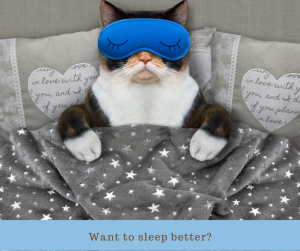08 Jul 5 Tips for a better nights sleep

By Jake Lamberton.
Sleep is an incredibly important part of our lives and something that most of us will spend a third of our lives doing! For some people struggling with sleep can feel incredibly demoralizing, but you can do a number of things to try and ensure you get a good night’s sleep.
- Have a schedule and only use your bed for sleeping. It can be a lot easier to get to sleep if your body associates a certain time and place (like your bed) with sleeping.
- No caffeine, alcohol or nicotine a minimum of 4 hours before bedtime. Caffeine and nicotine are stimulants and can make it difficult to fall asleep. Alcohol can help some people fall asleep but general disturbs the quality of your sleep.
- Keep your routine the same. If you have a bad night’s sleep, it is usually better to keep your routine the same, including no napping. Changing your schedule and napping can start to reinforce the notion that it is okay to compensate for a bad night’s sleep in this way, setting up unhelpful habits and sustaining poor night sleep.
- Exercise and eat healthy. Exercise can leave us relaxed and tired and ready for sleep, but ensure it is done at least 3 to 4 hours before bedtime. A healthy diet is a key to maintaining energy balance, but timing is important. Make sure you are not too full or empty at bedtime.
- Don’t watch the clock. Checking the time usually just reinforces unhelpful and stress-inducing thoughts, such as ‘I’ll never get to sleep!’ or ‘how have I not fallen asleep yet?!’ Checking the time can also wake you up further if your phone is bright or you turn on the light to check the time.
Sleep is incredibly important, but remember struggling to fall asleep every now and then is completely normal and something we all experience. If you are continuously struggling with falling asleep trying some of the above tips might help to get those Z’s!
This blog was written by Jake Lamberton, to learn more about Jake’s experience, click here.
To book an appointment with Jake or one of our other Psychologists, click here.


Sorry, the comment form is closed at this time.